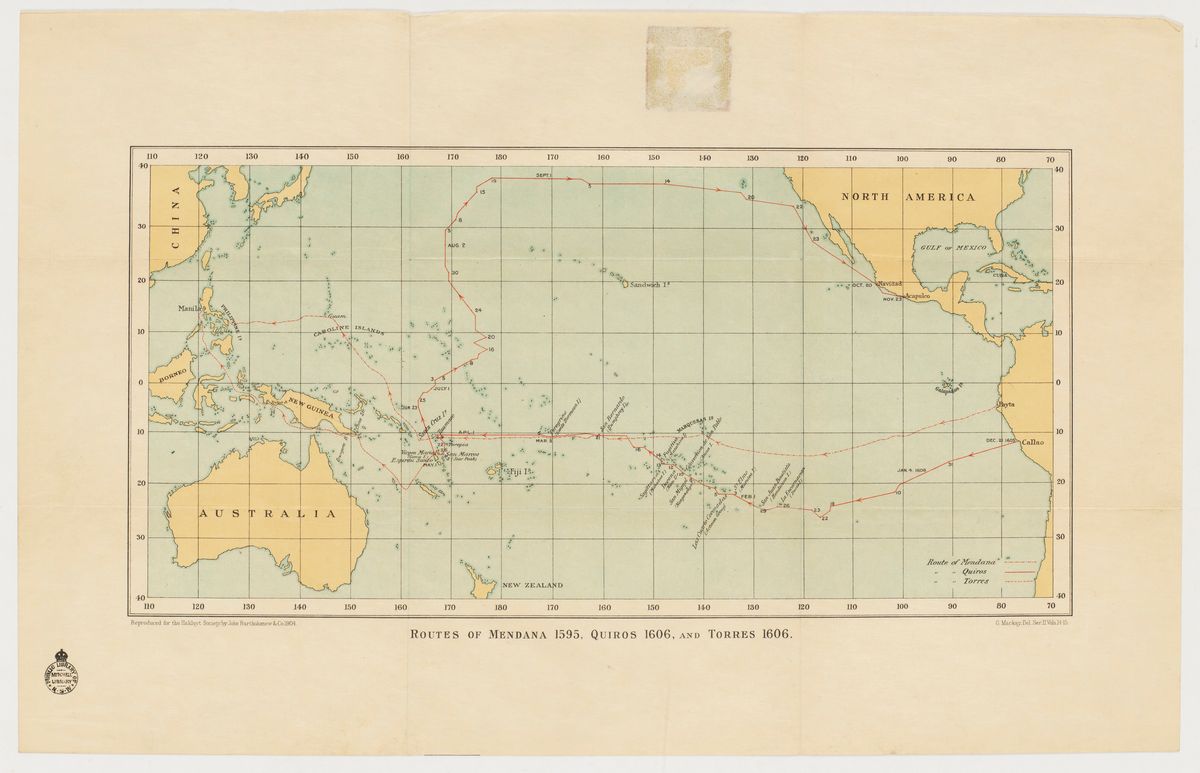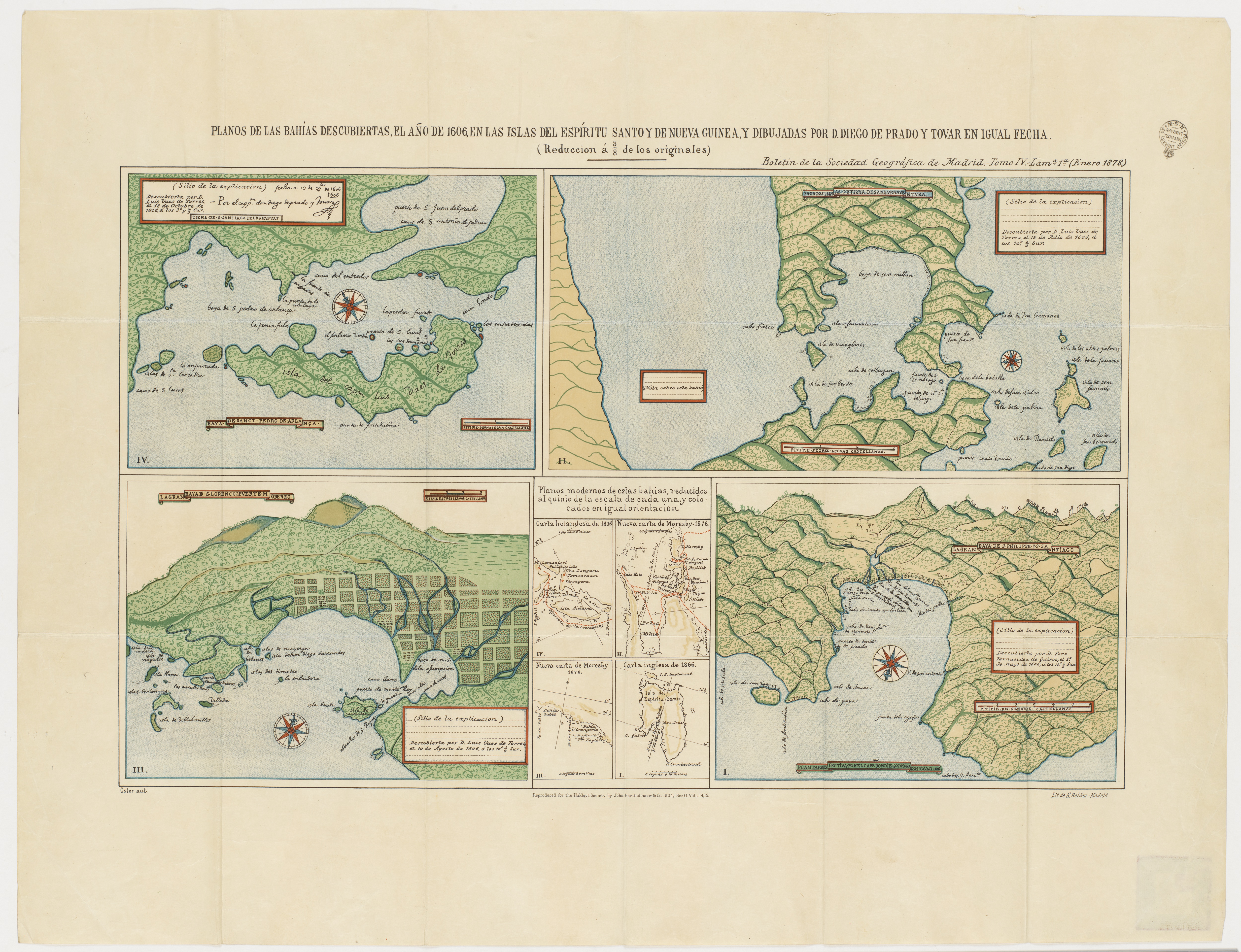>>About QUIROS

QUIROS IS A NEWSLETTER AND GROUP BLOG about religion, politics and the arts. It grew out of the desire to turn our reading practice into sustained pieces of writing for a wider audience, and from conversations about the place of theology and religion in Australia. Christianity is undergoing a generational shift, as are many aspects of our public culture. We are writers, theologians, philosophers and journalists from a variety of Christian traditions who want to think through this situation together. Hit the subscribe button to get newsletters from us in your inbox.
Who was Pedro Ferdinand de Quiros?
IN 1605, THE SPANISH EXPLORER PEDRO FERDINAND DE QUIROS set out from Callao, Peru, on an expedition to discover Terra Australis Incognita, the mysterious postulated Southern continent. The following year, after many tribulations at sea, his 150 ton ship San Pedro y San Pablo entered a magnificent bay, which he named Vera Cruz. After exploring the coastline and attempting to open friendly dialogue with the Indigenous people, de Quiros’ party decamped and constructed a small fort and temporary church, dedicated to Our Lady of Loreto. A procession took place with a relic of the True Cross, and Mass was celebrated on the apodosis of the Feast of Holy Pentecost.
Yet the discovery of Austrialia del Espiritu Santo by de Quiros was soon said to have been a mistake; the Catholic had actually landed in modern-day Vanuatu. But alternate histories have a way of persisting long after they have ostensibly been defeated. As late as 1901, Cardinal Patrick Francis Moran wrote that the British colonists who landed in Australia in 1788 were not the first. The true location of the bay of Vera Cruz and of the beginning of European contact with The Great South Land of the Holy Spirit, he claimed, was Port Curtis, near Gladstone in Queensland.
De Quiros’ mission was scattered by mysterious forces, forcing him to limp back to Mexico and then Spain, where he dreamed of a future return to Australia. He died in 1615 in Panama, after finally having been granted the warrant for another expedition following years of penury and sickness. Whether Quiros did discover this continent or not, he desired a different kind of settlement and prayed for it. As the Australian poet James McAuley recounts in his poem, Captain Quiros, on his death-bed the explorer wished this continent to be spared the injustices of colonisation in Latin America:
Quiros wrote out a Will, most quaintly flavoured
And spiked with emblems that our modern taste
In prayer and poetry has too much favoured.
He willed that Terra Australis should be graced
With fabulous ‘self-wounding pelicans’,
With ‘braziers of love’ and ‘pots and pans
Of piety and pity’, whence are savoured
The fruits of justice … and more figures too,
Expressive of his wish that the South Land
Might yet be spared what happened in Peru,
Where all too often the ennobling hand
Of Christian policy was brushed aside
By greedy men whose souls, he said,
‘were dyed With stains of unknown, dark, infernal hue’.
And yet before this explorer set out in search of Terra Australis Incognita, the country was already Austrialia del Spiritu Sancto. As St John Paul the Great said in his iconic Address to Aborigines and Torres Strait Islanders at Alice Springs, in 1986, the Holy Spirit had been here for thousands of years among the Indigenous people of our country:
As the human family spread over the face of the earth, your people settled and lived in this big country that stood apart from all the others. Other people did not even know this land was here; they only knew that somewhere in the southern oceans of the world there was ‘The Great South Land of the Holy Spirit’. But for thousands of years you have lived in this land and fashioned a culture that endures to this day. And during all this time, the Spirit of God has been with you.
So by naming this site after Pedro Ferdinand de Quiros we affirm that Australia is a spiritual nation, whatever we hear to the contrary. We signal our desire to go in search of undiscovered (and perhaps forgotten) possibilities for Christian life in our country. This continent was never Terra Nullius, but perhaps today more than ever its interior life is Terra Incognita. This brings risks of its own, as McAuley writes in Captain Quiros, because all searching is ultimately a dangerous voyage into that most elusive territory, the human heart:
Terra Australis you must celebrate,
Land of the inmost heart, searching for which
Men roam the earth, and on the way create
Their kingdoms in the Indies and grow rich,
With noble arts and cities; only to learn
They bear the old selves with them that could turn
The streams of Eden to a standing ditch.
This is a newsletter for writers who want to share the fruits of contemplation. It is not a catechetical newsletter, nor is it the official publication of any organisation, university, church, brand or club. At heart it's a response to the desire of writers to simply read and write, to review what’s out there at a length and in a style that is not really at home anywhere else. It will therefore be diverse by nature, and even this introduction is only the perspective of one participant in the project. We hope you will enjoy what you find. ◼️

